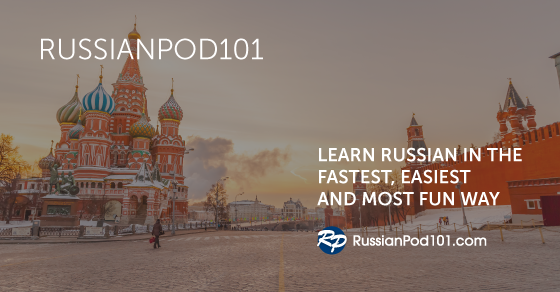برچسب: Breakdown
-

Discussing Language Abilities in Russian – Breakdown
Let’s look at the dialogue. When I read, I want you to pay attention to the words showing the languages. Find what these words are and see how they’re used in the dialogue. Здравствуйте, вы говорите по-английски? (Zdravstvuyte, vy govorite po-angliyski?) Hello, do you speak English? Да, я говорю по-английски. (Da, ya govoryu po-angliyski.) Yes, I speak English. First is a formal greeting Здравствуйте. (Zdravstvuyte). Hello Then the question. Вы говорите по-английски? (Vy govorite po-angliyski?) Do you speak English? Then the answer. Да, я говорю по-английски. (Da, ya govoryu po-angliyski.) Yes, I speak English. Or Нет, я не говорю по-английски. (Net, ya ne govoryu po-angliyski). No, I don’t speak English. Now let’s look at some speaking examples. First, you’re asked the question Вы говорите по-русски. vy govorite po-russki? Do you speak Russian? And you would answer. Да, я говорю по-русски. (Da, ya govoryu po-russki.) Yes, I speak Russian. And, if you ask about Japanese. You can answer. Да, я говорю по-японски. (Da, ya govoryu po-yaponski.) Yes, I speak Japanese. Now let’s look at the sentence pattern. This pattern will be the structure that all of our dialogues will follow. Да, я говорю по-[language]. (Da, ya govoryu po-[language].) Yes, I speak [language]. You may have noticed here that the word for English по-английски (po-angliyski) is a little different from the vocabulary section. The words in the vocabulary section are all adjectives referring to the language. Some example phrases are “английский актёр” (angliyskiy aktyor) – English actor “русский язык” (russkiy yazyk) – Russian language; “немецкий паспорт” (nemetskiy pasport) – German passport. When referring to the ability to speak a language the prefix “по” (po) is added with a hyphen, and the ending “й” (y) is removed. This is done for every language. Examples are по-русски (po-russki); по-японски (po-yaponski). -

Talking About Your Hobbies in Russian – Breakdown
Let’s look at the dialogue. When I read, I want you to pay attention to the words showing a hobby. Find what these words are and see how they’re used in the dialogue. Какое у тебя хобби? (Kakoye u tebya chobbi?) What’s your hobby? Моё хобби – рыбалка. (Moyo chobbi – rybalka). My hobby is fishing. The question. Какое у тебя хобби? (Kakoye u tebya chobbi?) The answer. Моё хобби – рыбалка. (Moyo chobbi – rybalka). “У тебя” (“u tebya”) is the formal version of the word “your”. You can also say “твоё” (“tvoyo”) instead of “у тебя” (“u tebya”). For example, “Какое твоё хобби?” (“Kakoye tvoyo chobbi?”). The meanings of these words are the same. And the informal version of the word “your” is “у вас” (“u vas”) or “ваше” (“vashe”). For example, “Какое у вас хобби?” (“Kakoye u vas chobbi?”) Or “Какое ваше хобби?” (“Kakoye vashe chobbi?”). This formal pronoun is usually capitalized to show respect for the other person. And now let’s look at some speaking examples. Моё хобби – путешествия. (Moyo chobbi – puteshestviya). My hobby is traveling. Моё хобби – путешествия. (Moyo chobbi – puteshestviya). Моё хобби – плавание. (Moyo chobbi – plavaniye). My hobby is swimming. Моё хобби – плавание. (Moyo chobbi – plavaniye). Моё хобби – чтение. (Moyo chobbi – chteniye). My hobby is reading. Моё хобби – чтение. (Moyo chobbi – chteniye). By the way Russia is one of the countries where people read the most. People read in the subway, on buses, in lines. Now ebooks are the most popular. Russians prefer to read psychological, motivational, professional literature but they also don’t forget about fiction. Now let’s look at the sentence pattern. This pattern will be the structure that all of our dialogues will follow. Моё хобби – [hobby]. (Moyo chobbi – [hobby]). My hobby is [hobby]. The word [hobby] can be a noun, as shown in today’s lesson, or a verb. The word “cooking” as a noun does not have a proper translation in Russian that could be shown as one word. The word “готовка” (“gotovka”) has a little bit of an informal connotation. It would be better to use the verb “готовить” (“gotovit’”), which means “to cook”. “Моё хобби – готовить” (Moyo chobbi – gotovit’).